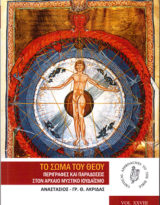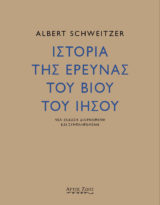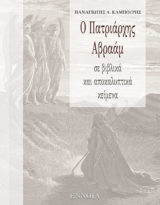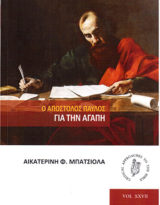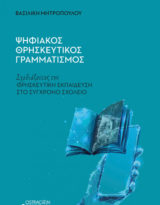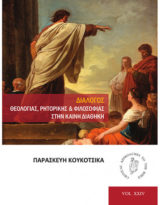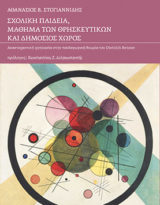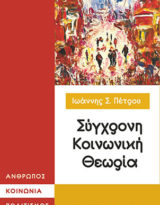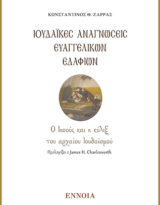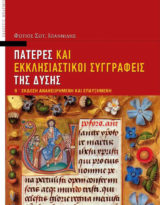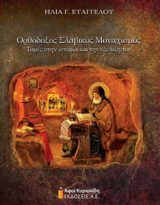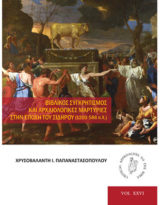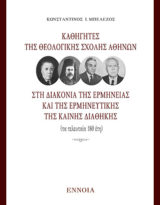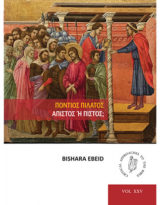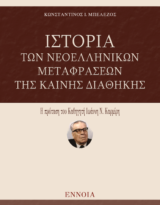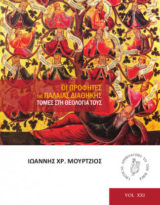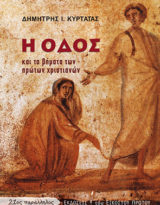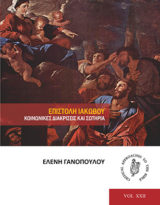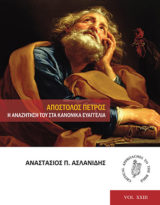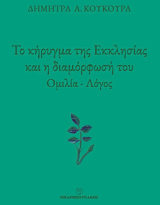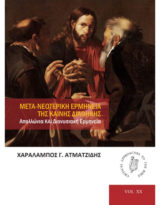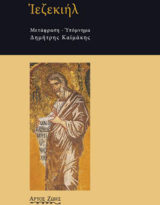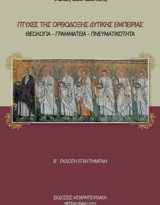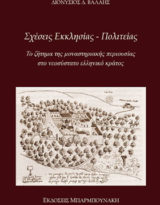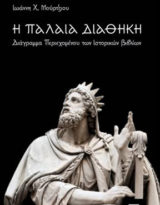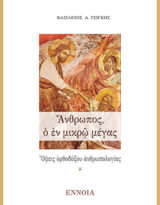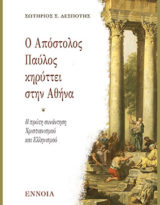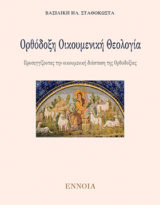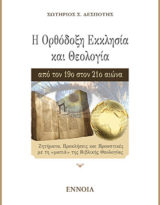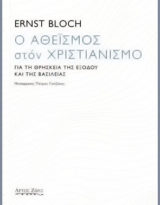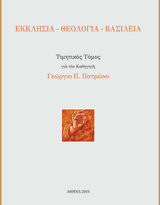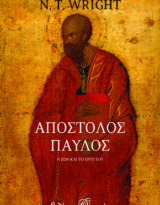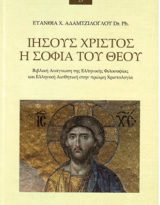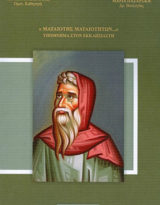Petros Vassiliadis (Emeritus Professor of the School of Theology of AUTH)
On behalf of the Center of Ecumenical, Missiological and Environmental Studies (CEMES), I would like to express, as its President, our gratitude to all the speakers who responded positively to our call for papers, and also to welcome all of you in this hall, hoping that you will contribute to the lively – and fruitful I hope – discussion that will follow. CEMES is organizing these panels on this very provocative title: “Orthodoxy and Nationalistic Ecclesiology,” which as the subtitle (Challenging the globality of the 21th century) indirectly indicates is in fact challenging the catholicity of our Orthodox Church.
Contemporary Orthodoxy by any consideration is, and certainly will be, determined by the Holy and Great Council that met in June 2016 in Crete. Despite the importance of both the mission and the ecclesiological documents, there appeared crucial problems both by the last-minute decision by 4 Churches to abstain and by the reservation during the preparation process expressed by a large segment of Orthodox, who are opposing any ecumenical activity. If the mission document is of extraordinary significance, not only because it clearly states that the Church “exists for the world, and not for herself,” but also because it came at a time when the entire world, regardless of religious or even non-religious affiliation, had enthusiastically accepted two similar mission statements: the famous Apostolic Exhortation of Pope Francis “Evangelii Gaudium” (2013), and almost simultaneously the new Mission Statement of WCC: “Together towards Life: Mission and Evangelism in Changing Landscapes;” the ecclesiological one, “Relations of the Orthodox Church with the Rest of the Christian World” has shown to the Orthodox that something serious is inherent in their ecclesiological praxis – not its theory and theology – undermining the catholicity and questioning the Orthodox Churches ages-old quest for Christian unity; not to mention of course our constant prayer “for the union of all”.
To these problems another one was added, the Ukrainian crisis. Two inter-related issues are connected with this crisis that seriously affected the Orthodox unity: autocephaly on the one hand, and the model of Church unity, and particularly the notion of primacy on the other. The problem is neither the EP’s initiative to grant autocephaly to the Ukrainian Church, nor the breaking of communion of the MP with Constantinople. From the theological discussion that preceded and followed the convocation of the Holy and Great Council, as well as the granting of autocephaly to the Ukrainian Church, it became quite evident that something more serious is actually at stake.
Let us briefly analyze the crisis itself. The Russian Orthodox Church has so far refused to respond to the historical, canonical and theological arguments of the EP to grant autocephaly to the Orthodox Church of Ukraine. And this revealed that the main reason of the crisis – which is not just Ukrainian any more, but undergirds the entire Orthodox world – is of a profound ecclesiological nature, connected both to the model of the overall Christian Unity and to the established in the East model of Autocephalism. The Orthodox unity, therefore, needs to be examined with these two notions in mind. That is why in CEMES we decided to examine the Ukrainian autocephaly on scholarly theological grounds within the triptych: “primacy-conciliarity-autocephaly.”
Allow me to say a few words on the results of an ad hoc CEMES scientific committee, assigned the task to examine the theological, historical and canonical debate on the Ukrainian crisis from as neutral as possible perspective, i.e. by assessing the official positions of all the players of the dispute.
The first who produced convincing arguments on the issue was the EP that officially published at the end of September the booklet: The Ecumenical Throne and the Church of Ukraine – The Documents Speak. The MP denied to officially respond to these arguments; only anonymous comments and semi-official responses were published, the most serious being (mid-October) the one by prof. Mickail Zheltov, member of a MP synodical committee, with an older treatise of his, written in English, which naturally did not fully respond to the most recent arguments of the EP. In addition, prof. Zheltov, being a renowned liturgist, skipped the condition of the commemoration by the Kyivan Metropolitan of the Ecumenical Patriarch, interpreting this condition, not as a binding one, but as “no more than simple good wishes.” The MP followed a rather communication strategy.
The committee realized that the main document on which this painful division could be resolved was the basic canonical document, the 1686 Patriarchal and Synodal “Act” or “Letter of Issue” (Γράμμα ἐκδόσεως), by which only the right to ordain the Metropolitan of Kyiv was granted to the Patriarch of Moscow, not the jurisdiction over the Metropolia of Kyiv. And most importantly on the condition to commemorate always in the Divine Liturgy the Ecumenical Patriarch, something that evidently proves that the Kyivan Metropolia still remained under his omophorion.
If, therefore, the Metropolia of Kyiv is canonically under the EP jurisdiction, there is neither an intrusion into the Russian jurisdiction, nor any problem in receiving ekkliton appeals from the condemned as schismatics, and even anathematized, clerics of the former UOC KP and UAOC (their leaders and clergy, as well as their flock).
The MP rightly insisted on the unity of the Kyivan and Moschovite Rus. However, this is a past history, by no means relevant to the present situation, where the vast majority of the Ukrainian people consider the Russians as aggressors to their country and the head of the MP as persona non grata in the independent now state of Ukraine.
The CEMES interim report did not put the blame for the Ukrainian crisis either on the EP, which is canonically obliged to defend its ecumenically set rights, or on the MP, which was also trying to defend its alleged canonical jurisdiction, using whatever arguments it considers appropriate, but exclusively on the Ukrainian Orthodox Church under the Moscow Patriarchate (UOC MP). By refusing to participate in the unification process they lost a unique opportunity to secure both their legitimate control of the autocephalous-in-the-process Orthodox Church in Ukraine, and – what is even more important – the possibility to determine and pursue the actual unity between Ukrainian and Russian Orthodoxy.
The MP, by both avoiding to produce the “numerous documentary evidence” (as they said) on their jurisdictional claims on Ukraine, and by insisting on other areas, and more precisely: (a) on the accusation against the EP of neo-papism, (b) on refusing his canonical right to receive ekkliton appeals, and (c) on the EP falling to the pan-heresy of ecumenism and even to Uniatism etc., has brought into the surface the real cause of the Orthodox ecclesiological crisis. To put in simple terms, the profound reason behind the Ukrainian crisis is no other that “the Orthodox Primacy”! The interim report, I mentioned above, argued that the MP, in its effort to follow the official political, national and cultural narrative of a united RusskiyMir, may have settled to a compromise by accepting a double jurisdiction in Ukraine as they did in Estonia.
Let us, now consider the development of the ecclesiological structure of Eastern Christianity in the second millennium, particularly after what has been erroneously characterized as the Great “Schism.” Until then Pentarchy was in charge in all administrative matters, with the Bishop of Rome first in rank (seniority), and equally the Bishop of New Rome holding – according to the IV Ecumenical Council – “the same rank (πρεσβεία, as the Old Rome) in ecclesiastical matters…coming second after her” (Canon 28), and then Alexandria, Antioch and Jerusalem.
In the 2nd millennium, beginning with the gradual independence (still not autocephaly in the modern sense) of the Church of the Rus, living in the only area not conquered by the Ottoman empire, which was later given the patriarchal dignity, the ecclesiological traditional primatial authority in the East started being disintegrated. Unlike what happened in the West, which retained after the eventual separation from the East a specific authority in the person of the Bishop of Rome. The situation was further deteriorated after the Councils in Lyon and later in Ferrara and Florence with the unfairly attempted unity, especially in the areas of the present-day Ukraine, via uniatism.
In the last two centuries of the 2nd millennium, following the French revolution and the ideals of the Enlightenment there was a wake of unilaterally self-proclaimed independent national Orthodox Churches creating canonical irregularities and resulting in schismatic situations – most notably in my own Greek autocephalous Church (1833 το 1850). All these developments consolidated the new notion of Orthodoxy= autocephaly. There was, of course, a precedence with Cyprus after the III Ecumenical Council, but this was not on national/ethic/linguistic grounds. It was for this reason that an all-Orthodox (as much as possible) council was convened in 1878 to condemn the ethnophyletism, a proper ecclesiastical term corresponding to the “nationalistic ecclesiology” of the overall title of our sessions. In all the ensuing ecclesiological irregularities and schismatic situations, the Ecumenical Patriarchate intervened, following the Canons of the Ecumenical Councils, and eventually healed the existing schisms bringing back millions of Orthodox to the canonical Orthodox Church by granting autocephaly to their Churches. This is what happened to all newer Patriarchates and Autocephalous Orthodox Churches, and it was quite natural this to be also applied to Ukraine, especially on the ground that Constantinople insists that she has never granted the jurisdiction of the Metropolia of Kyiv to the Moscow Patriarchate.
And this is exactly what EP kat’ oikonomian did, to some extent because of the inability of the UOC MP to solve the problem, and thus retain Orthodox unity in the country. The EP was forced to act as it did: by revoking the 1686 act in its entirety, by receiving the “ekkliton” appeals of the schismatics and anathematized, since they are considered under the EP omophorion, and by restoring its Stavropegia in Kyiv. In fact, it reinstated the old Kyivan Metropolia, as part of the Ecumenical Patriarchate. With those canonical acts, the EP thought it would succeed in eliminating all possible canonical reservations.
One can of course argue that the Holy Canons, as canonical rules set in an old time, cannot solve current more complex situations with political and geopolitical consequences. Those who follow this logic, may not go as far as abandoning the ages-old canonical tradition that was established by the Ecumenical Councils, but in the back of their mind they propose a model of church unity without a Protos, without a primacy.
I am not saying that we must slavishly follow the holy canons with no contextualization of their content. I only insist that we need to keep our canonical tradition faithfully but dynamically interpreted. Otherwise, there is a danger to fall into a protestant-style “confederation” of independent Orthodox Churches, a situation almost inevitable with the alternative proposal. If that happens, we can no longer speak of the “one, holy, catholic and apostolic church” we confess in our Church, but of something alien to Christian and authentic Orthodox ecclesiology.
Autocephaly as such is not by any means a negative ecclesiological development, both in terms of adaptation to new situations (the situation of modernity with democratic values) and for pastoral reasons with the Church caring for a certain locality, where the people are entrusted by God to their ordained ministers (επίσκοπος=over-seer). But even loving for a nation can hardly be compatible with the catholicity and the ecumenical nature of the Church. Not to mention, of course, that in societies with illiberal and autocratic regimes the Church becomes more vulnerable; the example of the Catholic Church in Poland compared to the Orthodox Churches under the communist rule is just an indication. And of course, one has to explain why nationalistic tendencies have not occurred in the Churches of the West, which after all have undergone the revolution of modernity, whereas in all (or almost all) Orthodox Churches nationalistic tendencies are actually a norm.
Unfortunately, for many centuries the Orthodox theologians have abandoned their theological legacy, based on their Eucharistic and Baptismal ecclesiology, and developed a “negative” identity. For almost a millennium we were taught that we by essence are what the others are not – mainly the Catholics, the nearest to us ecclesiologically – in fact without a “primacy”. And this has led us to believe in, and insist more on, the “Church of the Eastern Fathers” rather than the “Church of Christ.” And what is even more dangerous: we developed an understanding of Church unity along the lines of the Western Westfalianism, in a system of “polycephalism.” And all these under the guise of autocephaly; in fact a distorted nationalistic and ethnophiletistic independent administration that gradually undermined the very essence of the Church’s oneness, holiness, catholicity and apostolicity, which we confess in almost all common prayers in our Liturgy. Thus, we have unconsciously made Orthodoxy a kind of “Confederation of independent Churches,” far away from our fundamental belief in the “One, Holy, Catholic and Apostolic Church.”
This kind of “negative” identity is expressed only at a universal level. With the present status primacy is exercised – at its extreme – both at a local (parish) level, sometimes ironically ignoring or neglecting conciliarity, and at the regional (national) level, in some autocephalous Orthodox Churches’ constitutional charters against the traditional canonical tradition. And it is similar to another aspect of “negative” identity, this time in reference to the Evangelical (Protestant) Christian communities: The Bible and mission, it was argued, do not constitute authentic Orthodox characteristics. Fortunately, through the activities of the various renewal Orthodox communities (brother/sisterhoods etc), both the prophetic (Bible) and the witnessing (cf. the Liturgy after the liturgy) aspects of the Orthodox identity have been restored.
What is, finally, the most promising outcome of the Ukrainian crisis after the granting of Tomos is that the EP is reviving an ancient ecclesiological ethos; the participation of the entire people of God (clergy and laity) in our Church’s decision-making process, which in our present day autocephalous Orthodox Churches is either forgotten or at best marginalized. The meaning of the proposed charter to the December 15 sobor has brought back an authentic version of synodality, hopefully to be followed not only at the top, but at all levels of Church life: parish, diocese, regional/national, universal. In the Patriarchal letter of invitation, that ancient conciliar process was underlined, and recommended to the new Ukrainian Church, exactly as in the pre-1686 tradition: “Bishops, priests, those who lead monastic life and laypeople will take part in the Unification Council on December 15 in Kyiv. All of them, the letter went on, will have the right to vote”. We hope this will alert all our Orthodox Churches, instead of being enslaved, like the Greek and the Russian Churches, among others, to secular authorities, and most importantly abandon once and for all the ecclesiological decease of nationalism.


